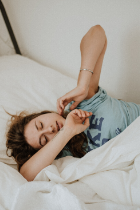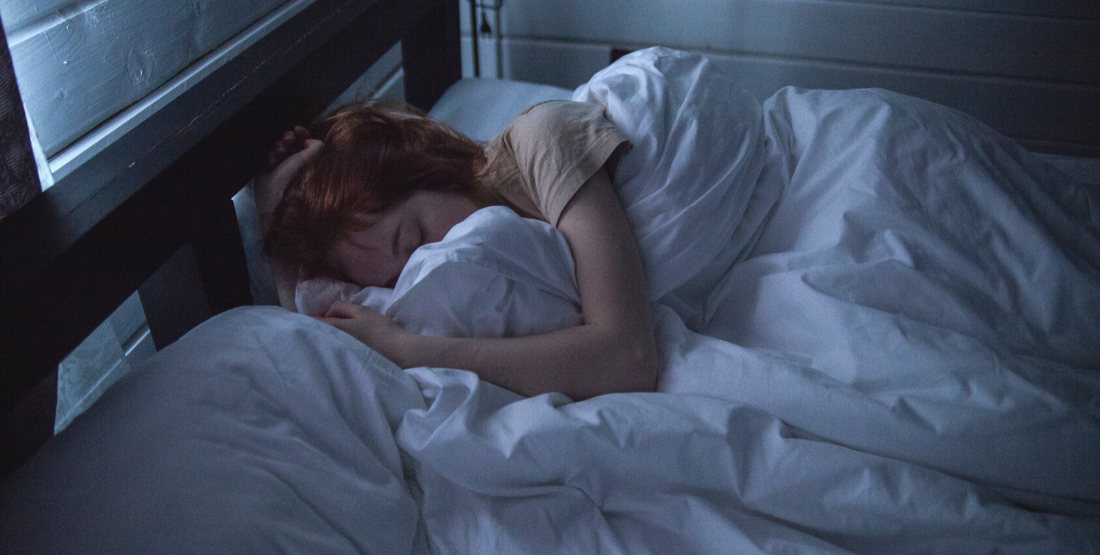Crew Tips for Better Rest and Sleep

While working onboard a superyacht is an extremely exciting proposition, it also comes with certain challenges – one of the most important being disruptions to your sleep schedule, which is bound to be an irregular one on board.
So, how do you cope with sleep shortage without developing chronic sleep deprivation and remain an effective crew member? We’ve put together some tips to help you get some quality rest…
1. Try Bi-Phasic or Polyphasic Sleep
If you’re working shifts or you’re on watch, chances are that you you’ll be getting a maximum of 3-4 hours of sleep in a row rather than the recommended 7-9 hours, but that doesn’t mean you can’t feel rested and be productive.
Polyphasic sleep is when you break your sleep into short naps during the day instead of getting one big 8-hour chunk of sleep as most people do.
For those who sleep during the night only, this might sound surprising, but some historians and scientists suggest that a biphasic sleep pattern — or a combo of night sleep and a short nap during the day — might have been the norm for humans in ancient times. Even though most of us don’t have a midday nap nowadays, we may still experience a so-called ‘post-lunch’ dip in energy which can be a precondition for a good nap, according to research.
There are many different polyphasic sleep schedules you can choose to follow, but the most effective one is to make your nap duration equal to multiples of one standard sleep cycle, which lasts about 90 minutes. This way you’ll go through all sleep stages and will be able to easily wake up without experiencing sleep inertia.

To prepare for polyphasic sleep, first you may need to determine the duration of your sleep cycles. Any modern sleep tracker can help you do that, then plan your naps throughout the day based on your rotation schedule and try to stick to the same times every day where possible.
Learn a Few Techniques to Fall Asleep Fast
Training yourself to fall asleep faster will make you more adaptive to constantly changing conditions on board, as you won’t be spending hours tossing and turning.
There are many methods, but not all of them will work equally well for everyone so it may take some time to try different techniques and find the ones that really help you fall asleep fast. Here are a few you can start with:
● Guided meditation. Focusing on your breathing with the help of the 4-7-8 method or yoga breathing exercises to help slow down your heart rate and induce the feeling of calmness, allowing you to drift off quickly.
● Sleeping on your back. The supine position is sometimes perceived as the most relaxing by our bodies. Sleeping on your back eliminates the accumulated tension in your cervical and lumbar areas and may even help reduce headaches after a rough shift. Besides, this position corresponds to savasana practice in yoga, which is believed to trigger the parasympathetic nervous system — the division responsible for our ‘rest-and-digest’ state that helps us relax. So, if you’re used to snoozing in a different sleep position, you may want to check out these tips to train yourself to sleep on your back.
● Progressive muscle relaxation. This method is used by the US military and is fairly simple: you need to flex different groups of muscles one by one for brief periods of time, and then relax them. Move from your feet to your face. This may take some practice, but it’s incredibly effective for making you relaxed.
You can combine these techniques or come up with your personal recipe for faster falling asleep — it’s all up to you.

Avoid Alcohol Completely (and use caffeine wisely)
An irregular sleeping schedule, as well as insufficient sleep, may result in a temptation to boost your vigor with a shot of espresso or to use the sleep-inducing effect of alcoholic beverages to help yourself drift off. However it’s important to stay moderate on the former and avoid the latter completely.
Caffeine can indeed help you stay alert by blocking adenosine receptors - since adenosine is one of the main inhibitory neurotransmitters. But sincecaffeine has a half-life of 4-6 hours, it can help you get through a watch but you may have difficulty falling asleep when it’s time to rest. So be sure to use your coffee shots for early watches only and this way it will be out of your system towards the evening and won’t have a big impact on your sleep.
When it comes to alcohol though, it’s better to avoid it completely. Studies show that despite mimicking the effect of GABA (our main inhibitory neurotransmitter) on brain cells, alcoholic beverages can alter the sleep structure.
In particular, strong drinks may increase the percentage of slow-wave sleep meaning you’ll spend more time in the deep sleep phase and may experience sleep inertia upon waking up. Sleep inertia manifests with headaches, loss of orientation, and slower reaction time — qualities that certainly won’t make you a productive member of the crew.
Try to Eat Healthy Foods
Working on a yacht can put certain limitations on your diet, but this doesn’t mean that you need to turn to a junk food binge. Try to eat whole and filling foods such as vegetables, grains, nuts, and dairy where possible, and don’t go for deep-fried and overly spiced meat or fish, especially before sleep: they can irritate your stomach and feel heavy on the digestive system.
Also, try to grab something to eat a couple of hours before sleeping so you’ll have time to digest the food properly and won’t experience an upset stomach.

Use Sleep Aids
Finally, you can ease your sleep issues and get better sleep on a yacht by using over-the-counter sleep aids. These are typically derived from plant-based extracts or contain synthetic analogs of substances naturally found in our bodies, such as glycine or melatonin.
Here’s how some of them can help you:
● Adaptogenic herbs: Rhodiola and ashwagandha extracts can help you cope with stress levels from lack of sleep, inducing a calmer state of mind and helping you drift off more easily.
● Melatonin: This one is your sleep hormone. Taking melatonin pills will help you balance out your circadian rhythms and allow you to adapt to shifts more quickly. Also, melatonin is known for its ability to help you cope with jet-lag symptoms, so it will come in handy if your yacht travels through different time zones.
● Glycine: This amino acid takes part in serotonin synthesis. Serotonin, in turn, is needed for elevating melatonin levels and triggering the parasympathetic nervous system that is responsible for relaxation.
Note that although these sleep aids are considered safe, it’s still a good idea to consult your healthcare provider once on land.
Avoid Screentime Prior To Sleeping
In a recent interview with Consumers Advocate, Dr. Rohit Budhiraja, director of Brigham and Women's Hospital's sleep clinic stated “Light is the enemy of sleep." Cellphones and other mobile devices are blue light sources and major disruptors of sleep. “Smartphones are shown to decrease sleep by up to half an hour.” Budhiraja suggests putting your phone down one to two hours before you go to bed.
Images: Pixabay, Unsplash


Post your comment
You cannot post comments until you have logged in.
Login to post a commentComments
No one has commented on this page yet.
RSS feed for comments on this page | RSS feed for all comments